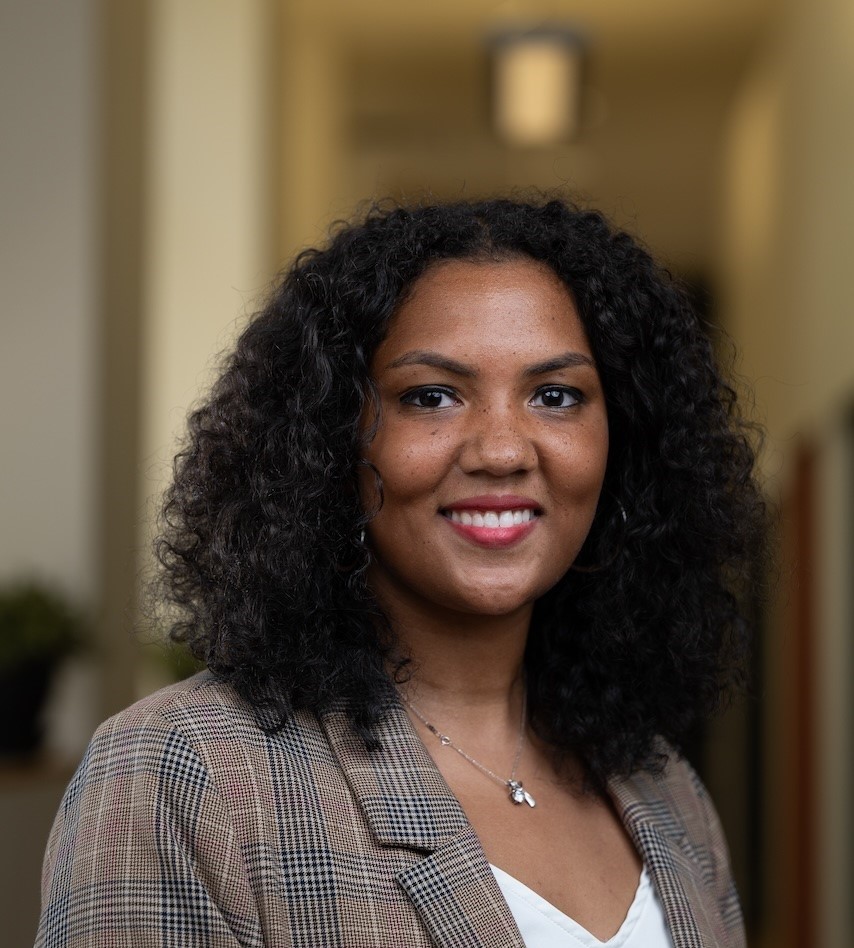Aysha Jerald is PPA’s newest Research Associate I. She has experience as a teacher and researcher and is passionate about developing policies that improve people’s lives and promote equity. She has a bachelor’s degree in English/English education from the University of Georgia. She earned a master’s degree in educational studies, program evaluation, and improvement research from the University of Michigan, where she served as a Program Evaluation Associate and was a qualitative research assistant for the Center for Global Health Equity.
Your bachelor’s degree is from the University of Georgia. Are you from the South?
I was proudly born and raised in Georgia. I grew up in this town called Sugar Hill. My mom is from Macon, so I spent a lot of time there. And my dad is from College Park, so I was there a lot, too. So, yes, I’m a Southern girl, even though I don’t think I have an accent.
When did you become interested in research and public policy?
As an undergraduate, I was a McNair Scholar, so I was involved in research training and research projects within my cohort and on an individual basis. I did a number of individual pilot studies and was introduced to autoethnography (where researchers incorporate their own experiences and perspectives to understand cultural, psychological, or political phenomena) and ethnography work. I developed a love for qualitative research and interviewing people and getting to know people’s stories and bringing that to the research setting.
You also have experience as a teacher.
After graduating from University of Georgia, I taught at a Title I School in Norcross, Georgia, where I was a high school teacher. That period of time was extremely formative and inspirational. It got me thinking about educational policy—specifically how my colleagues and I were affected in negative ways by policy decisions made at the district level. I became really interested in how research and educational policy can be used to make things better and bring forth the voices to create a bridge between top-down structures that exist in those systems.
When I decided to pursue my master’s degree at the University of Michigan, I knew I wanted to do something with research that was going to mean something, and I was going to help people who were like me. I see research in the policy arena as a way to uplift the voices of those on the ground, because they can really get trampled by those on the top.
How did you come to work at PPA?
I became aware of PPA, and the position, from a professor at U of M, who knows a lot of people there and knows what the organization does and what they stand for, including giving a voice to people at the bottom. I want to engage in work that matters, so I was either going to join a firm doing work that changes lives, or go back to teaching. I ended up applying for PPA because I was just inspired by the organization.
What are your long-term goals?
Whatever I do, I want to make sure my work is having an impact, that it matters. I want to help people bridge gaps and make the discrepancies between top and bottom structures less common. I really am loving the work at PPA. The projects we are doing are going to help people in the education sector, the health sector, and the social justice sector.
I want to go back to school and get my doctorate degree. A lot of people at PPA have Ph.D.s and decided to work in spaces like this because they want to produce research that can be used for state and federal offices to help them make informed decisions.
What do you enjoy doing outside of work?
I was a big theater kid in high school and would be part of musical theater plays and would do a lot of improv when I was younger. Since I’m working remotely and don’t get to see as many people as I wanted, I decided to join an improv group. I just started taking improv classes at a local creative arts center.

